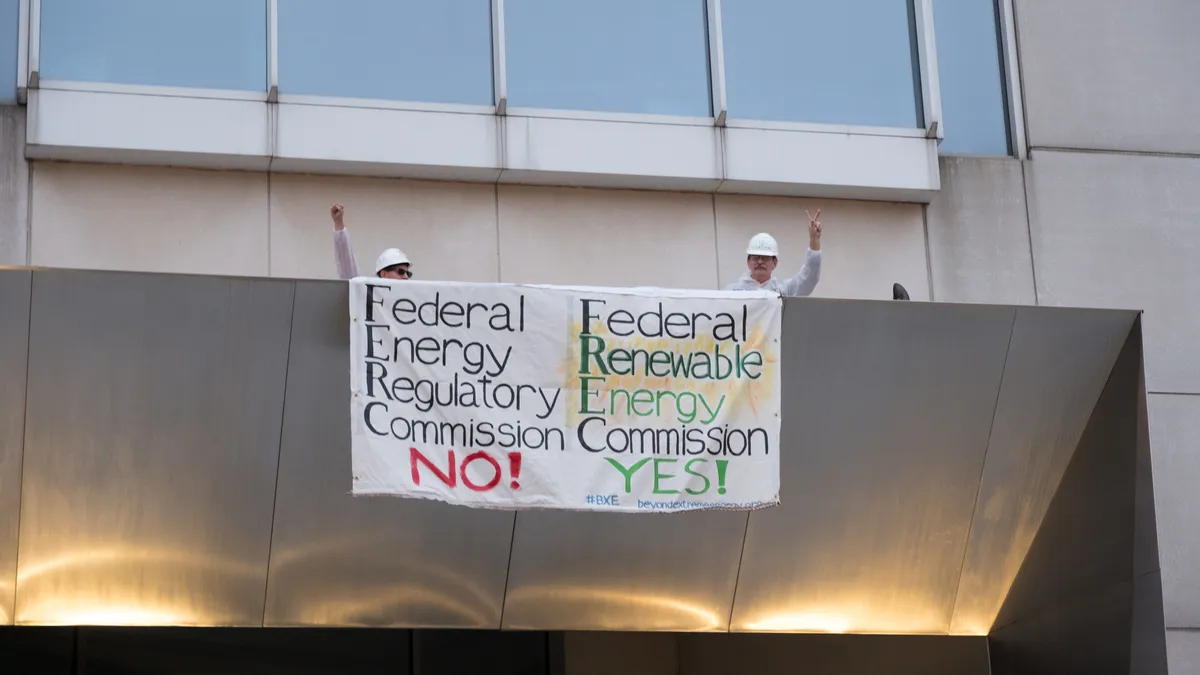UPDATE: Dec. 13, 2019: This story has been updated with a response from Attorney General Maura Healey.
Dive Brief:
- Massachusetts Attorney General Maura Healey launched an online effort on Tuesday to educate ratepayers about the region's grid operator, ISO-New England, including a petition for market rules that promote clean energy.
- The office, which also acts as the state's ratepayer advocate, is trying to increase awareness of market rules and the New England Power Pool (NEPOOL). It's been in touch with other attorneys general offices and ratepayer advocates in NEPOOL about this initiative.
- The same day, ISO-NE issued a blog to highlight its efforts to promote clean energy on the grid. Its Forward Capacity Market auction for 2023-2024 will be held in February, 2020.
Dive Insight:
In recent years, the Northeast region has discussed matching state-driven climate ambitions with ISO-NE's market design.
States are working to deploy greater amounts of renewable resources, and a group of U.S. senators from New England wrote ISO-NE about the adoption of renewable energy in the region on Nov. 18. Their letter came after many renewables advocates and states in the region were dismayed to see federal regulators allow a fuel capacity rule go into effect in ISO-NE.
The Competitive Auctions with Sponsored Policy Resources (CASPR) market design program came into effect when FERC had no quorum to act on the proposal. The senators specifically asked ISO-NE to respond with market rule changes because the program would incentivize the participation of incumbent fossil fuel generators and force state-sponsored renewable energy to wait for the retirement of those assets before entering the capacity market.
Gordon van Welie, ISO-NE president and CEO, responded to the senators to defend CASPR designs as a way avoid "the acquisition of more resources than is required for reliability." He added that it's a "second-best solution" and the grid operator had "long advocated that the region instead adopt a carbon price."
AG Healey was among the state voices that opposed CASPR, but the recent petition does not seek a specific action against ISO-NE policies. Instead, it is meant to inform the grid operator of how many ratepayers are paying attention to market rules.
New England's energy system is more expensive and more polluting than it should be.
— Maura Healey (@MassAGO) December 12, 2019
My office represents electricity users like you. We need to tell ISO New England to prioritize clean energy. Sign the petition: https://t.co/YLBjm1zfZU pic.twitter.com/wiha48j5rj
The petition asks ISO-NE for market rules that "promote affordable clean energy, healthy communities and climate protection."
The state's AG is unique from others in NEPOOL by doubling as the ratepayer advocate. They have participated in market proceedings before and regularly work with other stakeholders in NEPOOL. This is the office's first petition against the ISO, in support of ongoing efforts to advocate for electric market reform.
"We want to give ratepayers the tools to make their voices heard and help reshape our state's energy system for future generations," Healey said.
"It is not easy to engage on these issues, they're very technical," Ari Peskoe, director of Harvard University's Electricity Law Initiative, told Utility Dive. "A first step is just making people aware of the existence of this organization."
A lot more public engagement is seen with states' public utilities commissions and the Federal Energy Regulatory Commission regarding climate change, Peskoe said.
“We hope that this new initiative will help build on that grassroots activism and educate even more people about the importance of transitioning away from polluting fossil fuels and toward cleaner energy," Healey said via email.
"Particularly around climate issues, there's a lot of grassroots attention and certainly, these RTOs are in the shadows, but... the decisions they'd be making are having a big impact," Peskoe said.
The grid operator did not specify if it's received other petitions from stakeholders in the past, but it responded on a blog that "we are always pleased to see people interested in the future of energy in the region."















